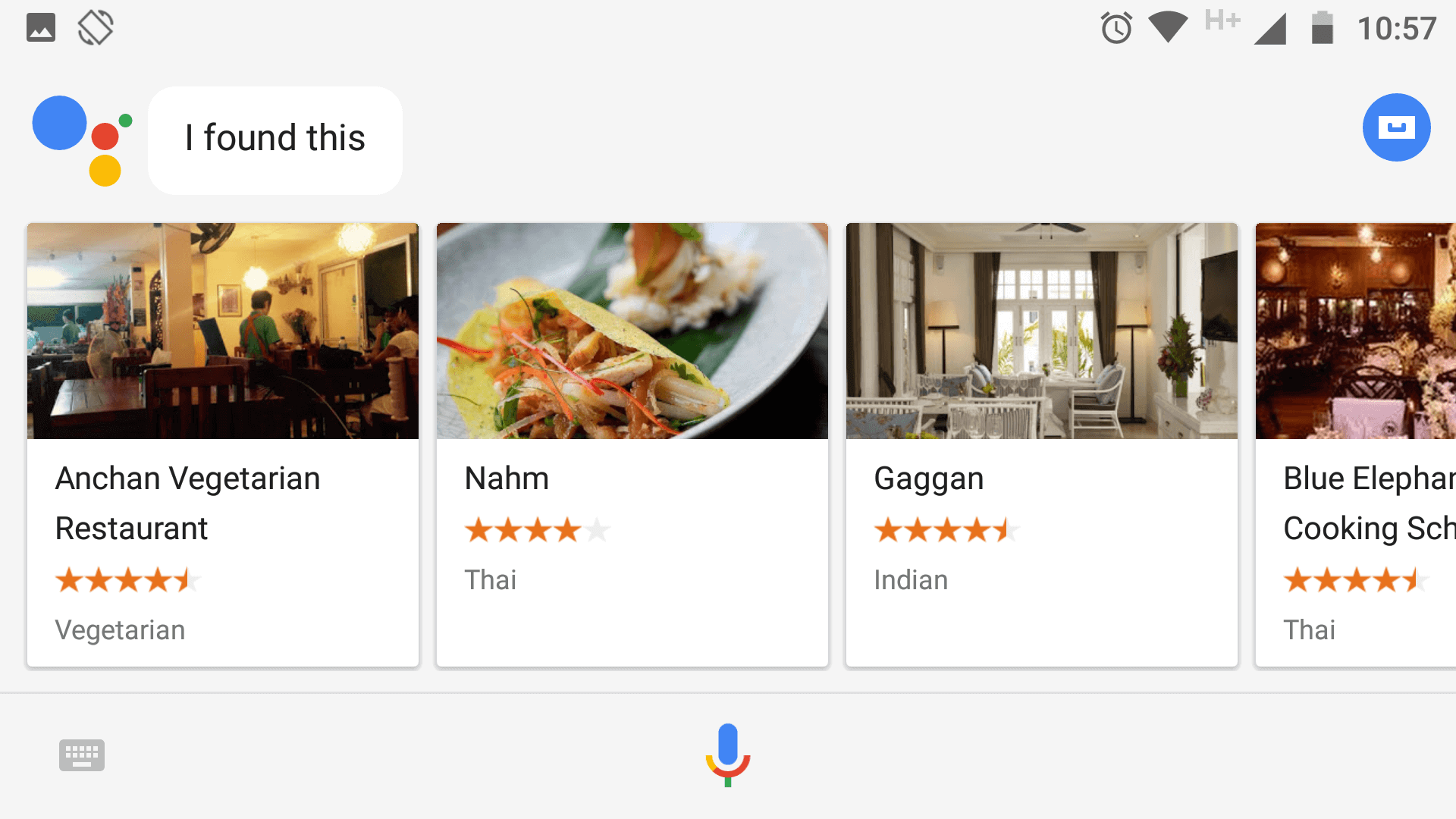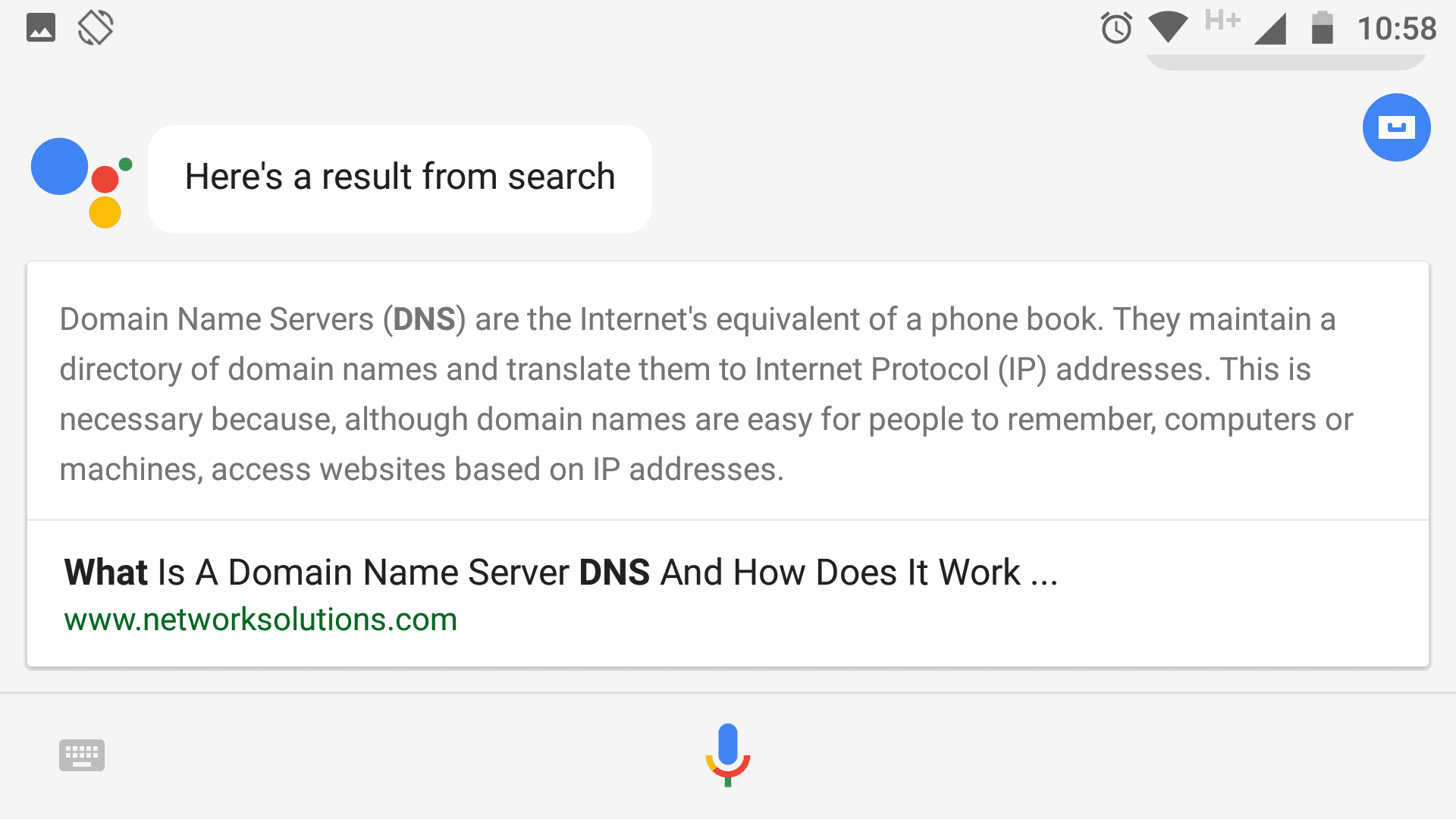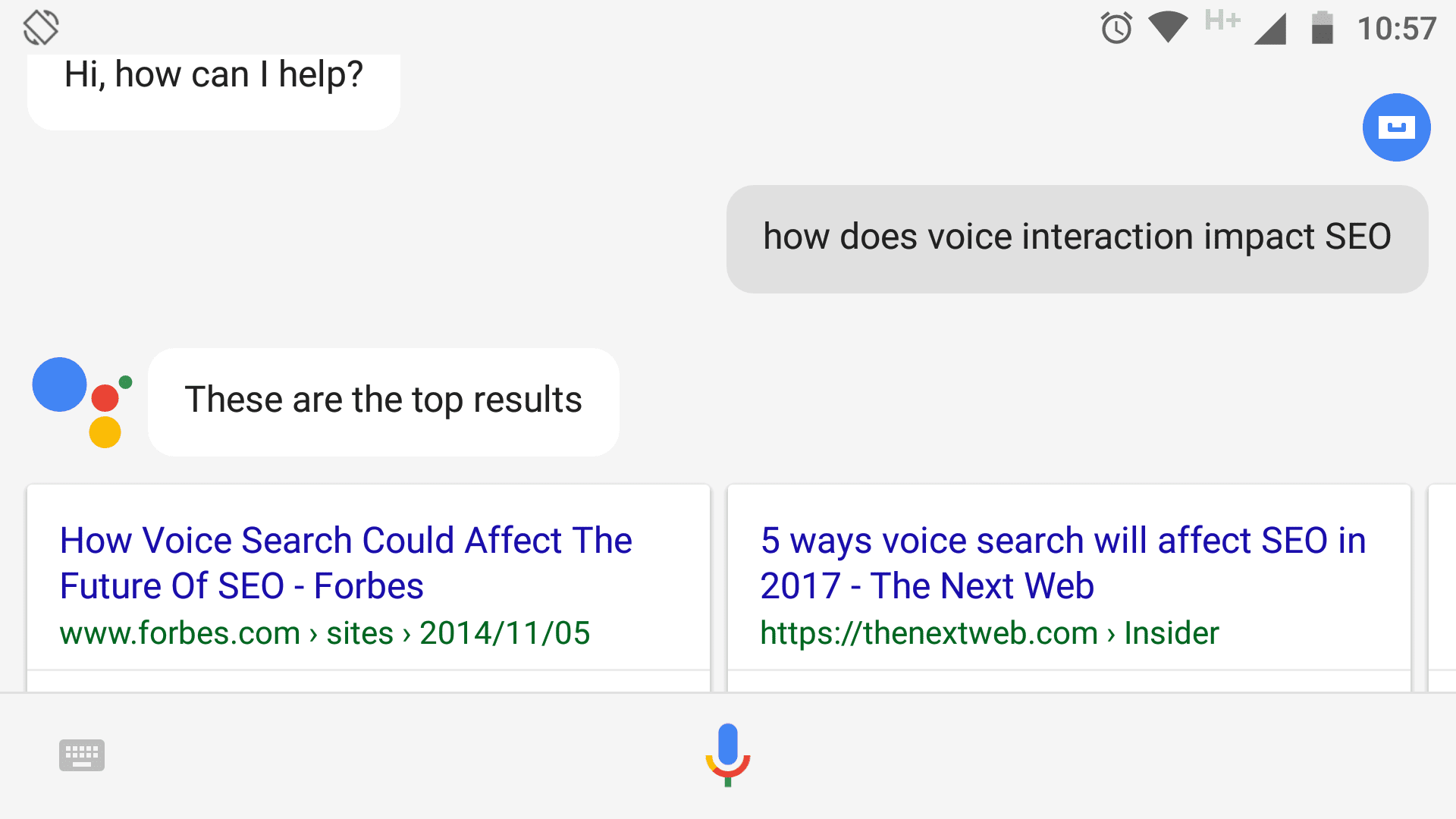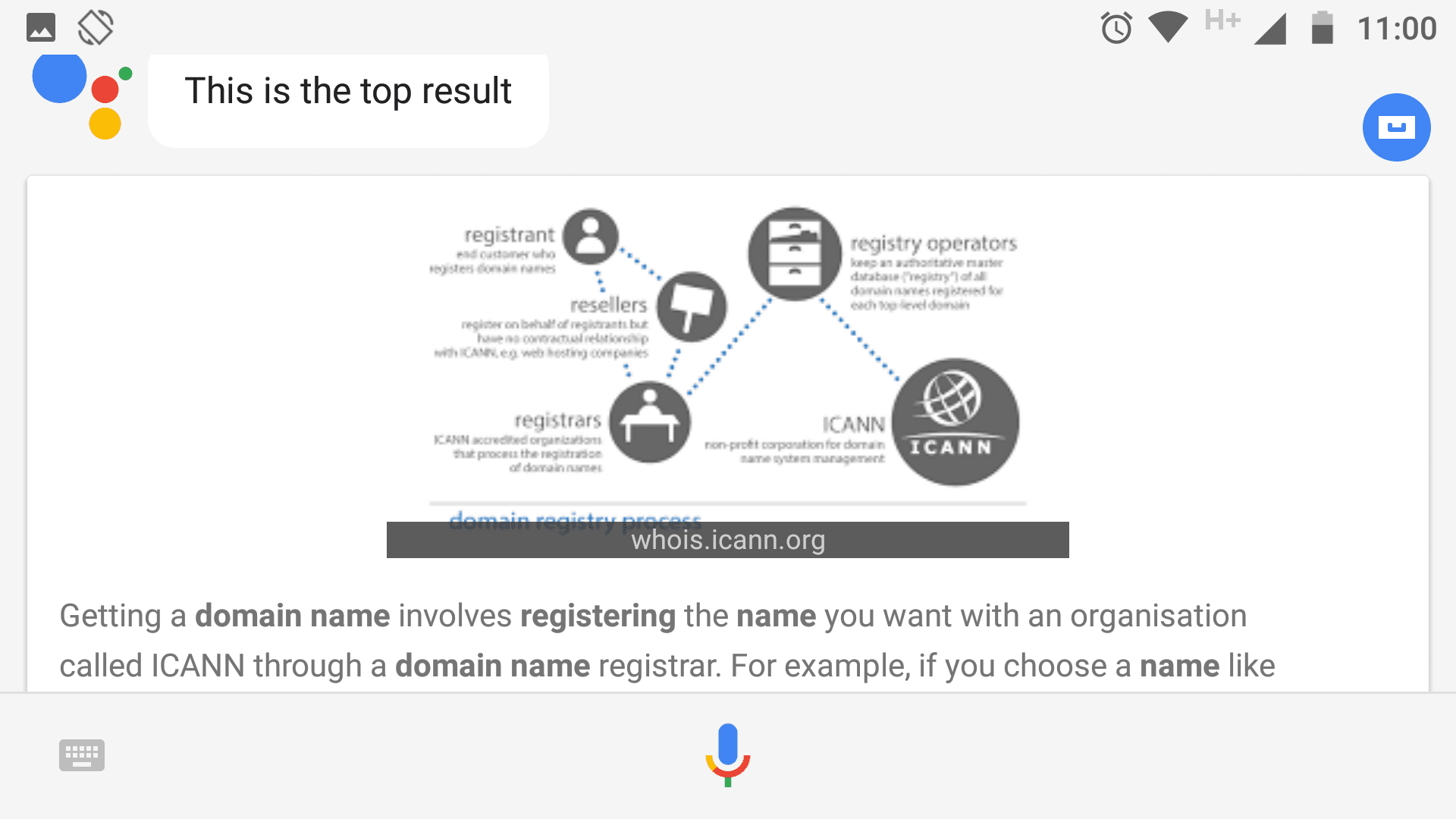The more that mobile devices permeate every aspect of our lives, the greater the impact they have on the way we search for content online. In the past, you had to use the right keywords if you wanted to find results quickly, but nowadays you can just ask your phone to do it for you.
Voice interaction is here to stay, and it’ll probably overhaul the way we tackle Search Engine Optimization (SEO) in the long run. In this article, we’ll discuss three ways that voice interaction will impact SEO, and provide you with two simple methods for adapting your WordPress website to those changes. Let’s get started!
3 Ways Voice Search Will Shake Up Search Engine Optimization
In most cases, when we talk about voice interaction, we’re also indirectly referring to mobile devices. It’s wrong to say that nobody runs voice-based searches on desktop PCs or laptops – after all, that technology is on the rise – but those cases are the exception rather than the norm. Throughout this section, we’ll also deal with the way we use our mobile devices to search for content, and how it affects SEO.
1. People Will Voice Their Questions Differently
You may be the type of person who runs a lot of search queries per day. This will often involve sitting down at the computer and typing keywords to find what you’re looking for. For example, if you were searching for a similar article to this one, you could type ‘voice interaction SEO’. It’s concise, and very likely to return exactly what you’re looking for.
In contrast, voice-based searches are more likely to be phrased as full queries. Let’s use an example to illustrate the difference between both types of searches:
- Typed search: ‘voice interaction SEO’.
- Voice-based search: ‘How does voice interaction impact SEO?’
If you try this out for yourself, you’ll find the results for both queries are very similar (although this is not always the case):

The real question is: why do people phrase their queries differently using voice interaction? There’s little research to explain it, but to speculate, we’d say it’s because it feels more natural to use full phrases during voice searches. These days, most modern devices can understand semi-complex queries – and they’re getting better all the time – so there’s no need to dumb them down to be understood by the algorithm.
As far as SEO goes, the main difference for you is a need to start focusing on more long-tail keywords. We’ll talk more about how to do this in a minute, but for now, let’s keep going over how voice interactions will impact SEO.
2. Context Will Become More Important for Searches
In a lot of cases, the results you get from search engines are context-free. For example, at a base level, Google won’t take aspects such as your location into consideration unless you include it in your search query.
However, this doesn’t hold true for mobile devices. For example, most smartphones will keep close track of your location, and provide you with useful information based on that data:

However, this information can also impact the results you get from search queries (positively, in most cases) by providing context. Let’s imagine for a moment that you’re in New York looking for the best Thai restaurant close by. Here are two ways to get that information based on the type of search you’re using:
- Typed search: ‘best thai restaurants in New York’.
- Voice-based search: ‘Are there any good Thai restaurants close by?’
In both cases, Google will pull data from its review system to find you the best possible results. However, when it comes to voice searches, you don’t need to tell your device where you’re located – it already knows:

From an SEO standpoint, it can be smart to target your content for context-based searches, or you could lose out on local business. Of course, it depends on what type of website you’re running, but if you deal in services or sales, you need to start targeting local keywords.
3. The Use of Direct Answers Will Rise Over Long Lists of Results
Online searches have always worked in the same way. You input a query, and the search engine returns a long list of websites ranked according to its particular algorithm. The content you’re looking for is usually there, but finding it can be tricky.
Nowadays, search engines still work the same, but they also give you direct answers from time to time depending on your queries. For example, if you want to know more about the Domain Name System (DNS) and how it works, you might use either of these queries:
- Typed search: ‘DNS’.
- Voice-based search: ‘What’s a DNS?’
If you search on a desktop computer, you’ll see a result that stands out above the rest. It’s what the search engine believes to be the best answer, so it’s given priority over other results to save you time. However, you’ll still be able to scroll down and take a look at the rest of the Search Engine Results Pages (SERPs):

On the other hand, searching by using a full phrase on a mobile device is more likely to give you a direct result:

This happens because in most cases, people don’t want to scroll through long lists of results on a mobile device – they just want a direct answer. Google understands this and prioritizes the best results when it’s confident they’re exactly what users are looking for.
In practice, this means tangential results are less likely to show up on mobile searches. Plus, as Google refines its algorithms, chances are you’re going to start seeing direct answers more and more often. Getting to the top of the SERPs is of course important, but it’s going to become even more so in the future thanks to voice interactions. If you’re not there, your traffic might plummet for queries that have instant answers.
How to Optimize Your WordPress Website for Voice Interaction (2 Methods)
Now you know how voice interaction is going to shake up SEO, it’s time to ask: what can you do about it? The smart move is (of course) to start preparing right away. After all, mobile searches are already dominating, and 20% of those are based on voice queries.
The good news is the advice in this section is applicable regardless of which platform or theme you’re using. If you’re a Divi user, you’ll simply adapt the structure of your content and the way you tackle keywords to suit. However, you won’t have to make any fundamental changes to your site.
1. Use Long-Tail Keywords
A long-tail keyword is a short phrase that helps to optimize your content for SEO. For example, a long-tail keyword for this post might be: ‘how does voice interaction impact SEO?’:

Using this type of keyword might seem unwieldy, but as we discussed earlier, people tend to structure queries differently when they talk. Adapting your keywords appropriately is a good way to target these users and prepare your content for the rise of voice-based queries.
If you’re struggling to come up with good long-tail keywords for your content, keep these tips in mind:
- Start with one or two keywords, put them together in a phrase, and see if you can work it into your content.
- Look for questions associated with some popular keywords within your niche (for example, “most popular WordPress themes”, or “how to install WordPress”).
The only real issue with long-term keywords is how difficult they are to work into your content compared to shorter alternatives. However, as long as you stick with phrases that sound natural, you should be able to work them in without any hints of ‘keyword stuffing’.
2. Optimize Your Content for Search Engine ‘Instant Answers’
Earlier, we talked about the rise of instant answers in SERPs. They’re a fantastic way to get your content some extra exposure, and they’re particularly important when it comes to voice interaction. After all, mobile searches are more likely to return accurate answers for your queries.

The bad news is there isn’t a particular formula to ensure your content gets showcased as an instant answer. However, there are a few tips you can put into practice to increase your chances:
- Make sure your article’s title directly addresses the query you want to appear for as an instant answer.
- Include the answer to that particular query within your content.
- Structure your piece using subheadings to make it easier for Google to parse its content.
- Get your piece ranking on the first SERP for the query you’re targeting.
Naturally, the last step is the most difficult. Unless you’re an SEO machine, you’re going to struggle to get to the first page for all of your keywords. It means you need to put special effort into those pieces you think are instant answer material. Make them longer and better than anything the competition has to offer, so if they’re chosen by the search engine, they’ll entice readers to look through the rest of your content.
Conclusion
Keyword-based searches aren’t going away anytime soon, but that doesn’t mean newer methods such as voice interaction can be ignored. It’s a burgeoning medium for receiving search queries, so getting onboard now is vital. For example, you should look to use more long-tail keywords for your content and optimize your articles for any ‘instant answers’ feature the search engine provides.
Let’s recap the three ways voice interaction will shake up SEO:
- People will voice their questions differently to typed searches.
- Context-based searches will become more prominent.
- You’ll receive more direct answers over long lists of results.
What other changes do you think voice interaction will bring to the world of SEO? Share your thoughts with us in the comments section below!
Article image thumbnail by Igor Samoilik / shutterstock.com.
The post 3 Ways Voice Search Will Shake Up Search Engine Optimization appeared first on Elegant Themes Blog.
